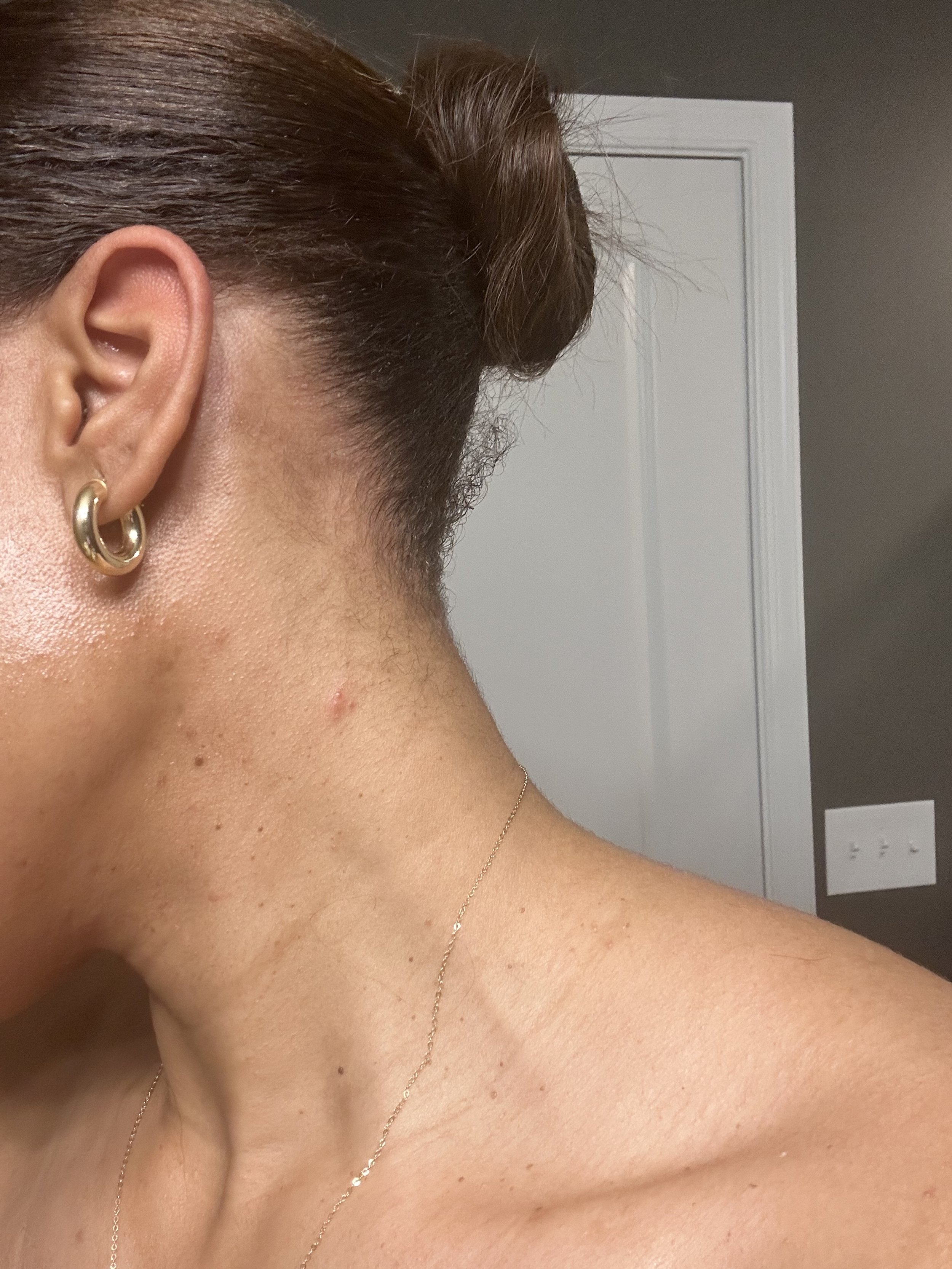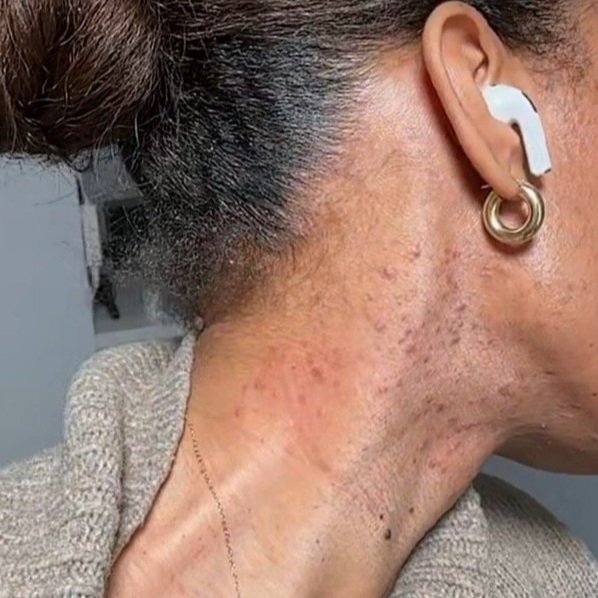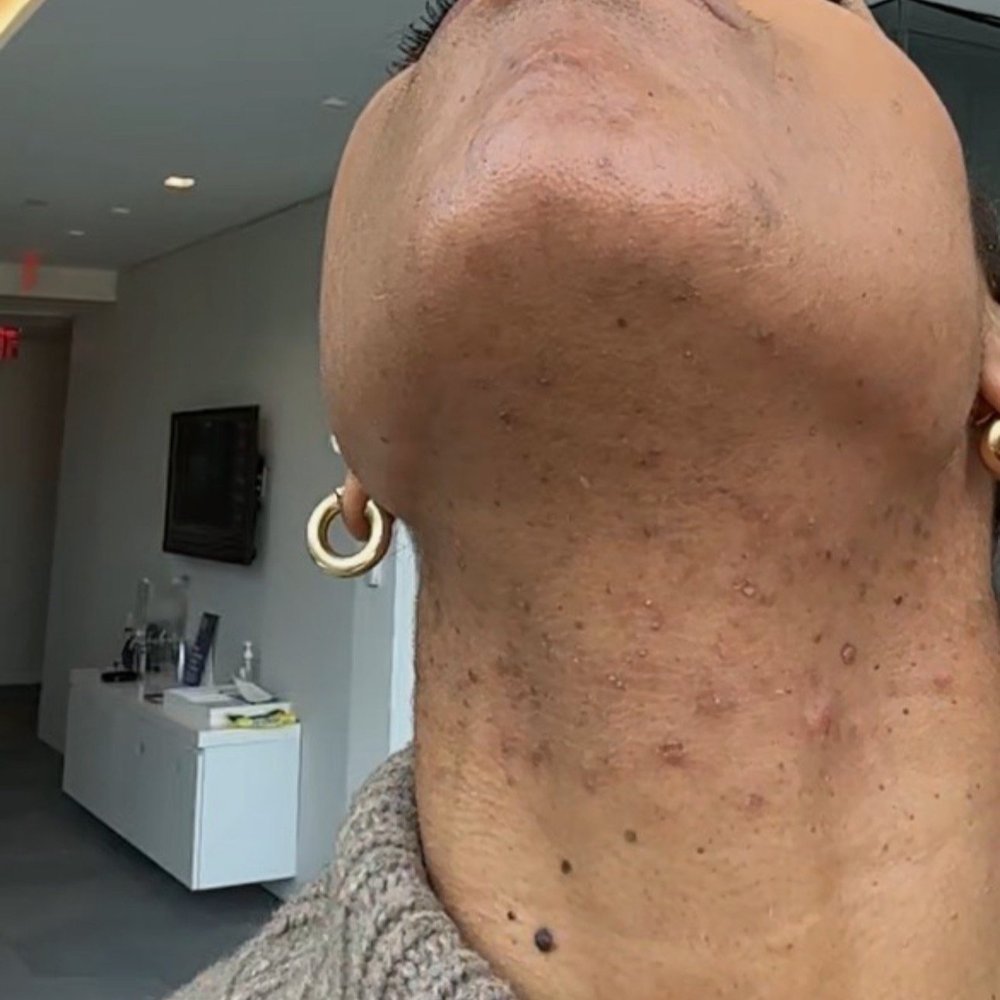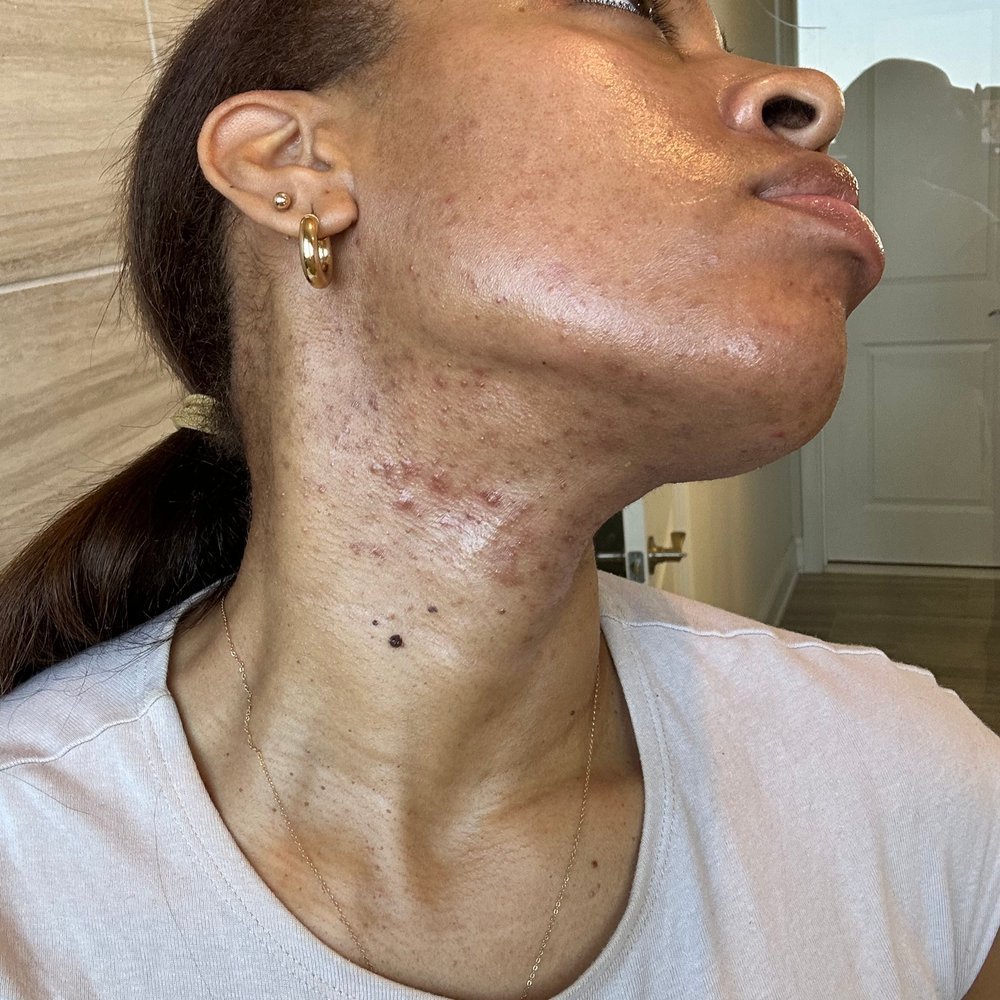Your Skin Breakouts May Be Fungal Acne
Did you know?
95% of People Suffer with Acne: Shockingly, 27% of those individuals may have fungal acne without realizing it. [Rubenstein]
Misguided Treatments: Initial attempts to treat your skin breakouts with prescription medication and harsh skincare worsened the condition.
Holistic Dermatologist: You may want to do a holistic approach if regular treatments haven't worked for you.
Signs of Fungal Acne: Itching, uniform bumps, may worsen acne in hot weather or post-workouts, breakouts on the face and body, and lack of improvement with traditional acne therapy are common indicators.
Seek Medical Professionals: Self-diagnosing can lead to further complications. You should always consult your doctor for proper diagnosis and personalized treatment.
As superficial as it may seem, there's immense pressure in my line of work as a professional hair and makeup artist to maintain flawless skin, hair, and makeup. However, there's one major hurdle—I've battled severe scaly dandruff (seborrheic dermatitis) and acne for as long as I can remember. It's a struggle I've always managed to quietly cope with. But in early 2024, something felt different. I faced the most severe breakout of my life.
What Happened?
During my nightly skin-care routine I noticed a tiny itchy-rash on my neck and jawline. It was so weird…I have never had a breakout on my neck and it’s never been itchy before.
January 18, 2024- Itchy rash appeared on neck and jawline (Right side)
(Left side)
I thought I was having an allergic reaction. I immediately scheduled an appointment with my in-network dermatologist, but they weren’t available until spring!
Something was happening internally, and my body was trying to communicate to me.
In the meantime, I began to use all my lotions and potions until I could see my doctor. I began using my prescription Tretinoin 0.25% (a medication used to treat acne) to “dry up the rash”. I was using it religiously for weeks, along with picky my skin. Big mistake!
This was leaving scars on my neck/jawline and skincare products (including the tretinoin) were leaving my skin so dry and flaky. My skincare routine and habits were making my acne worst.
February 26, 2024 - Inflammation, severe dryness, and redness (right side)
February 26, 2024 - (center neck and jawline)
My neck was itchy, and when I attempted to “pop” the zits, nothing would come out but clear fluid.
By March 2024, my confidence was shaken because my skin looked so bad. I used filters on social media, wore turtlenecks, and applied layers of makeup—I found out later that the makeup was feeding my acne.
March 24, 2024 - (center of neck and jawline)
March 24, 2024 - My skin was very anger.
Over that same weekend, I scrolled through Instagram and stumbled upon a post from my friend and colleague, Lola Okanlawon. She shared her skincare journey with her dermatologist, Dr. Natasha Sandy, through a before-and-after photo. Luckily, Dr. Sandy had an opening for an appointment on Monday, so I quickly snagged it!
Lola's before image @lolasbeautymark
Lola's after image @lolasbeautymark
As I eagerly looked forward to my visit, I took some time to dig into Dr. Sandy's practice and background. What got me really excited was finding out that she wasn't just any old dermatologist—she was a Holistic Dermatologist.
I felt a rush of anticipation because I knew this was the start of my journey toward getting that peaceful, clear skin I've been dreaming of!
Signs You May Have Fungal Acne
Common signs and symptoms of fungal acne include (Rubenstein, 2014):
Itching (in almost 80% of people)
Bumps, pimples, papules, and pustules of similar shape and size (1–2 mm)
Worsening acne in hot weather or post-workouts
Face and body breakouts common on the chest, shoulders, and back
Other concurrent Malassezia-related skin conditions, like seborrheic dermatitis (severe dandruff) or Tinea versicolor
Lack of improvement or worsening with traditional acne therapy
If you suspect fungal acne, consult a dermatologist for proper diagnosis and tailored treatment.
Do not self-treat or diagnose. It will make things worse.
So, if, like me, you fall into the 27% of people who experience fungal acne, don’t stress – over the next few days I'm going to share how I cleared my acne and seborrheic dermatitis in 35 days.







